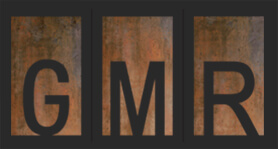In two separate appellate cases before the Pennsylvania Superior Court, Partner Eamon Merrigan successfully argued that the trial court victories obtained on behalf of GMR clients should stand.
The first case involved a slip and fall. Plaintiff had parked her car in front of GMR client-Defendants’ house and slipped and fell on snow and ice that was on their sidewalk. While she was lying on the ground, she called her mother who lived across the street. Plaintiff’s mother brought Plaintiff home and Plaintiff subsequently went to the hospital. As a result of the fall, Plaintiff sustained a fracture to her right shoulder, which required surgery.
At trial, Plaintiff sought to preclude Eamon from introducing evidence of a pre-existing chronic injury to Plaintiff’s knee as well as her use of prescription narcotics due to the pain caused by the by her knee injury. However, Eamon argued that evidence of her prior knee injury and prescriptions was admissible to establish that Plaintiff was not currently on pain medication solely as a result of the fall and to establish her prior pain levels. The trial court ruled in Eamon’s favor.
Plaintiff did not call her mother to testify at trial. During closing arguments, Eamon asked that the jury make an adverse inference against Plaintiff for failing to call her own mother as a witness at trial. After all, Plaintiff’s mother was the only witness who could corroborate any of Plaintiff’s testimony about the incident. Plaintiff claimed that this argument was improper and unfairly prejudicial. In response, Eamon argued Plaintiff’s mother was peculiarly within Plaintiff’s control and an adverse inference argument was proper under Pennsylvania case law. The trial court ruled in Eamon’s favor.
At the end of the trial, the jury returned with a verdict for GMR client-Defendant. Plaintiff would eventually file an appeal alleging that the trial court erred in admitting the prescription evidence and allowing the adverse inference argument.
In the second case, a trip and fall, Eamon was able to obtain a non-suit prior to opening arguments. Plaintiff had failed to timely disclose the report of her medical expert providing the report just days before trial. Eamon filed a motion to preclude the expert’s testimony citing the prejudice to his client due to the late disclosure and Plaintiff’s blatant disregard for court-ordered deadlines. The trial court granted Eamon ’s motion.
After the court granted the motion precluding the expert from testifying, Eamon made an oral motion for non-suit. Eamon argued that expert medical testimony was required due to Plaintiff’s delay in experiencing symptoms after the fall. Without the expert’s testimony, Plaintiff would be unable to prove that the fall caused her late-onset injuries.
The trial court agreed with Eamon and entered a non-suit in favor GMR client-Defendant. Plaintiff would eventually file an appeal alleging that the trial court erred in precluding the expert and granting the non-suit.
Eamon filed responsive Appellate briefs in both cases. In two separate proceedings, Eamon argued that before a panel of three Superior Court Justices, that the trial court’s rulings were proper under the law. The Pennsylvania Superior agreed with Eamon on both issues and the Pennsylvania Superior Court Justices upheld the trial court’s rulings and the victories for the two GMR client-Defendants.





